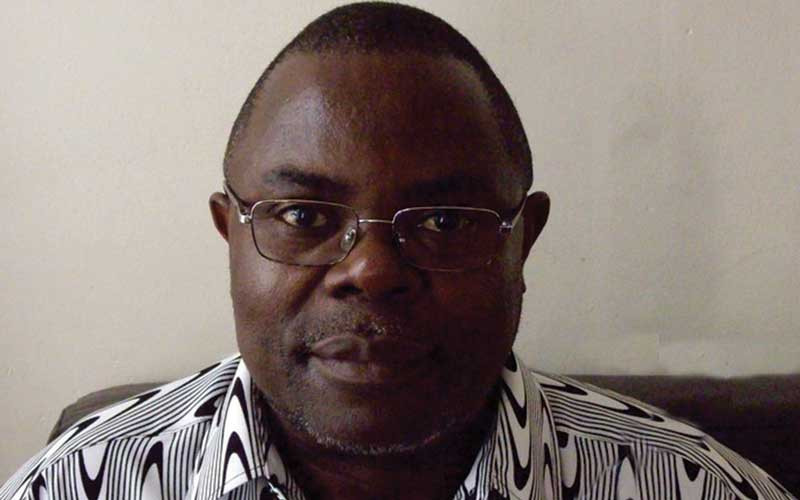
WHAT is happening to the currency situation in Zimbabwe?
Since the official dollarisation was ended in 2017, Zimbabwe’s financial system has suffered a continuous series of uncertainty resulting in economic instability. Zimbabwe is experiencing high rates of inflation and as such the government is pursuing a passive or accommodating monetary policy which expands the money supply more rapidly than the output of goods and services.
This article is designed to trace the sources of the currency problems the country is facing as well as tracing the inflationary monetary expansion. It is common knowledge that Zimbabweans are experiencing rocketing price increases at frequent intervals with the result that the country’s annual inflation rate stands at 200%.
A number of reasons account for the poor performance of the economy generally and for the financial instability in particular. The unofficial dollarisation of the Zimbabwe financial system is the main reason and is of a major concern. So long as the public uses United States dollars under the guise of the existence of a multi-currency regime, chronic inflation becomes the order of the day.
The intention behind the instrumentalisation of the multi-currency system is to dollarise the financial system through the backdoor, but the effect is to compound the problem. Indeed, it has always been a great puzzle as to why the US dollar is used as a unit of account when purchasing or selling goods and services even when it is not the legal tender.
The US dollar is looming large in most transactions. Wholesalers, retailers, informal traders and tuckshops are quoting the prices of goods and services in US dollars. Fuel stations are charging in US dollars. What is happening to the Zimbabwean economy? Commercial banks do not have US dollars to dispense to customers. It is clear that the US dollar is virtually displacing the Zimbabwe dollar. When people lose confidence in the ability of the government to restore stability to the domestic currency, they attempt to protect themselves from inflation through currency substitution.
Because the multicurrency regime is unregulated, the government is responding with irresponsible macro-economic policies as reflected in growing deficits, unconstrained monetary expansion and exchange rate instability. The failure to implement effective stabilisation policies has resulted in high inflation. The latter has also led to the creation of incentives for a black market in foreign currency and a curb market for credit such as local money lenders.
Zimbabwe is the only country in the world which has a four-tier pricing system for goods and services; namely the US dollar, Zimbabwe dollar, mobile money and swipe. Each of these units of account has its own problems. For example, the US dollar is in short supply. Most citizens get their US dollars from diasporans who send money through money transfer agencies.
- ‘Inflation could shoot to 700% by April next year’
- New perspectives: Inflation control critical for economic growth
- Inflation spike: Why interest rates aren’t the answer
- Feature: The inevitable return of the greenback
Keep Reading
The vast majority of the people are at the mercy of the Zimbabwe dollars which again are in short supply. The US dollar is out of reach for many people and where it is in circulation, the one dollar or two dollar denominations are either soiled, dirty or torn. What kind of currency regime are we dealing with?
Another abnormality is where wholesalers, retailers and tuckshop dealers for example quote the price of an item as US$4,50. Obviously no 50 cents is in circulation and one is required to pay the 50 cents in Zimbabwe dollars at an exchange rate which is often exorbitant. This explains why currency instability is the order of the day in Zimbabwe. The collapse of the Zimbabwean currency has returned the economy not to the original rate of inflation but to an even higher rate of inflation. A series of failed stabilisation efforts have eroded people’s confidence in the ability of the government to reverse the inflationary process.
The question: What has been the government response so far to the country’s financial and economic crisis? It is important to emphasise here that the Zimbabwean crisis is four-fold: high inflation, shortage of both foreign and local currency, lack of industrial development and the failure to cover the costs of imports with profits from exports. Regarding the currency situation, the existence of the multi-currency regime is illegal as it amounts to unofficial dollarisation.
The people who stand to benefit from the unofficial dollarisation are those who have greater access to the US dollars and black marketers.
Unofficial dollarisation is foul to the poor and the average consumer. It cannot be reasonably expected to pretend that foul is fair in order to accommodate the avarice and greed of the big fish and other vested interests in business. Traders are raising prices as a result of the prevalence of the multi-currency system. There are several exchange rates in place. There is the interbank rate of exchange; the black market rate of exchange; EcoCash exchange rate; swipe rate of exchange and the Zipit exchange rate. Indeed, Zimbabwe is a country labouring under a casino economy.
Even the Finance minister, Mthuli Ncube and his officials are failing to address the problems of inflation and economic instability. They rely on theorisation and textbook economics which is not reflective of the economic situation on the ground. The citizens have heard these economic policies before and yet they continue to struggle for survival.
On a final note: those economists and other analysts who are peddling the narrative that the Zimbabwean economy is stabilising are either living in dreamland, fools’ paradise or on a cloud cuckoo land. Zimbabwe’s economic progress and development are contingent on Zimbabwe adopting an alternative economic policy to effect a higher standard of living for the people. As long as the unofficial dollarisation exists, economic stability in Zimbabwe is four years away.
- Austin Chakaodza is a retired professor of international relations and political economy. He is also a political analyst on African affairs. He writes here in his personal capacity and can be contacted on [email protected]








